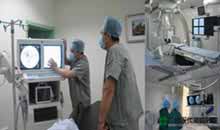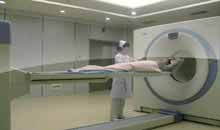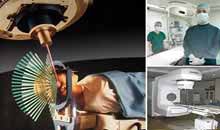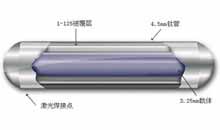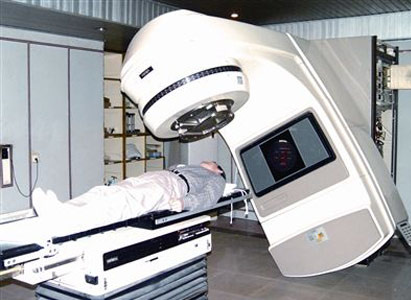
Radiation therapy or radiotherapy is therapy using ionizing radiation, generally as part of cancer treatment to control or kill malignant cells, which can be divided into systemic radiotherapy and regional radiotherapy. Radiation therapy may be curative in a number of types of cancer if they are localized to one area of the body. It may also be used as part of adjuvant therapy, together with surgery and chemotherapy, to improve cancer treatment success rate. In St. Stamford Modern Cancer Hospital Guangzhou, MDT provides suitable treatment options according to individual condition like cancer type, tumor size, cancer stage and personal physical condition.
Types of cancers which can be treated
Digestive system cancer
Surgery and radiation therapy have a same treatment effect on early stage oral unit cancer. Some kinds are more suitable for radiation treatment, such as tongue cancer and tonsil cancer. Surgery is suggested for early stage esophageal cancer, while radiation therapy is mainly used for middle and advanced stage patients. In addition, systematic radiation would be mostly suggested for cervical and upper thoracic esophageal cancer cause of surgical difficulties and poor postoperative life quality. For early stage colon, colorectal cancer, surgery would be more beneficial compared with radiation therapy. Cavity radiation and surgery have an identical curative effect on early stage colorectal cancer. Certain roles have showed on radiation therapy for early stage liver and pancreatic cancer.
Respiratory system cancer
Radiotherapy is given priority to nasopharyngeal carcinoma. If possible, radiotherapy prior to surgery for maxillary sinus cancer is suggested. But for those inoperable patients, radiotherapy alone would be of some effect. Radiotherapy or surgery is applied to early stage laryngeal cancer, while comprehensive treatments like radiation and surgery for advanced stage. Surgery is suitable for most of lung cancer cases. If patients are not suitable for surgery and with none distant metastasis, then radiotherapy is feasible. If radiation cannot meet the needs of the patients, minimally invasive treatments would be other options.
Urogenital system cancer
Surgery is given priority to renal cell carcinoma and radiation therapy after surgery is of certain advantages. For bladder cancer, generally surgery is suggested for early stage, radiotherapy before surgery for middle stage and palliative treatments for last stage. Testicular cancer should perform surgery firstly and subsequent with radiotherapy. Early stage cervical cancer, treatment effect is of the same between surgery and radiotherapy. However, stage II cervical cancer or even above stage can be treated with radiotherapy alone with significant effect. Pre-operative radiotherapy can be applied to endometrial cancer or radiation therapy for those who cannot be operated.
Breast cancer
Adjuvant radiation therapy is forbidden for stage I or stage II breast cancer patients, or patients with tumor located outside of the quadrant and axillary lymph node negative patients, whereas suggested for stage I patients with tumor located inside quadrant and stage II breast cancer patients. Surgery prior to irradiation is also advisable. Breast-conserving surgery prior to radiation treatments on lymphatic drainage area is also of great treatment effect.
Skin and soft tissue malignant tumor
Both surgery and radiotherapy are available for early stage skin and mucous membranes cancer (including penis and lips). Moreover, radiotherapy may be used into advanced stage treatments. Melanoma and other sarcoma should be based on surgery assist with radiotherapy.
Lymphatic cancer
I, II stage mainly with radiotherapy, and III, IV stage with chemotherapy and adjuvant local radiotherapy.
Overall, radiotherapy is suitable for early stage cancer treatments. However, for patients with advanced cancer, radiotherapy may be unable to control the situation and even will bring intolerable side effects, and then patients can adopt other new cancer treatment techniques such as cryotherapy, interventional therapy, microwave ablation therapy and other minimally invasive treatments.
What are the side effects of radiation therapy?
With conventional systemic radiation therapy, side effects may appear together with treatment effect, usually as nausea, vomiting, loss of hair, weakness, tiredness and so on.
Surgery, systemic chemotherapy and systemic radiotherapy are the three primary means of cancer treatment. However, since patients’ individual condition varies, some advanced cancer patients are not suitable for surgery or conventional chemotherapy, tor sick of side effects such as hair loss, vomiting caused by conventional treatments. For these patients, there are alternatives like 125I seed implantation, interventional therapy, and cryotherapy, etc. Appropriate cancer treatments programs can help reduce the pain, achieve better therapeutic effect, prolong survival and improve life quality.







